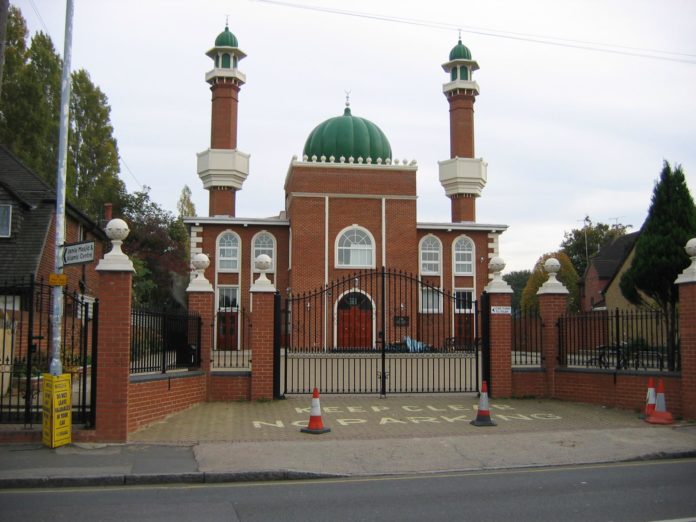Jamia Masjid Islamic Centre Slough has rejected claims that it discriminates against women after mainstream media articles targeted it for not allowing women to pray during Ramadan.
The articles appear to have been instigated by local activist Julie Siddiqi who released a video a few weeks ago saying that the mosque was using coronavirus as an excuse for misogyny.
In the video she said: “This is way beyond Covid, this is a mindset that tells men that they can decide whether I, or women, can go and pray in a mosque.”
Since her video a number of articles have appeared in the mainstream media, the latest of which was published by the BBC which insinuated that British mosques were discriminating against female worshippers by limiting their access to facilities.
But Jamia Masjid says it is a target of a smear campaign due to the introduction of temporary measures in the middle of a global pandemic.
In a statement the mosque said: “The JMIC categorically rejects this baseless accusation; one seemingly fomented through a calculated and targeted smear campaign instigated by a small minority, now further fuelled by national media. The JMIC has an open-door policy welcoming worshippers and service users from all backgrounds, whether male or female, young or old, Muslim or non-Muslim. To insinuate otherwise due to temporary, extraordinary restrictions in the middle of a deadly global pandemic is nothing short of malicious.

“With Slough consistently reporting some of the highest Covid infection rates in the UK, operational decisions taken by the JMIC during the pandemic have been science-led; in line with government guidelines and via consultation with medics, service-users (male and female) and faith leaders. As part of its Covid-response strategy, the JMIC took the difficult decision to scale back operations, focusing solely on the delivery of a ‘skeleton-service’ i.e., continuation of core services such as communal prayer and funeral services. The centre continues to operate on a skeleton-model during the month of Ramadan, curtailing other popular services such as the communal Iftar, water distribution, and sub-optimal prayer-hall capacity.
Subscribe to our newsletter and stay updated on the latest news and updates from around the Muslim world!
“After careful consultation with the leadership team that represents over 50 female volunteers serving in official and non-official roles at the centre, it was agreed — by consensus — that in the best interests of public safety and risk mitigation, the centre would deploy temporary measures to limit the number of worshippers attending the premises. This included requesting elderly men, children, those with underlying health conditions, as well as women and those with special access requirements to temporarily refrain from attending the site.
“These measures were primarily put into effect to shield visitors from serious illness, but equally to help implement a safe and efficient traffic management system for those continuing to attend the centre. Contrary to unfounded claims, this was not the implementation of a discriminatory two-tier offer, targeted at any single demographic of the public.
“The JMIC is one of the few centres in the South East that accommodates a 300+ capacity, purpose-built area for female worshippers. In order to adapt and respond to ever-increasing demand from female visitors, the centre is heavily investing in a new, larger, purpose-built washroom facility, with its own private access to the women’s prayer area…
“Despite the JMIC broadening its offer to the wider community, including women, it is regrettable that the BBC and other outlets chose to publish stories that lacked nuance and partiality, instead attempting to besmirch a leading institution by echoing ancient stereotypes and colonial-era tropes against Muslim communities.”
According to Islam, men are required to attend Friday prayers in the mosque and are encouraged to attend other congregational prayers. One the other hand, there is no such obligation or recommendation for women.


















